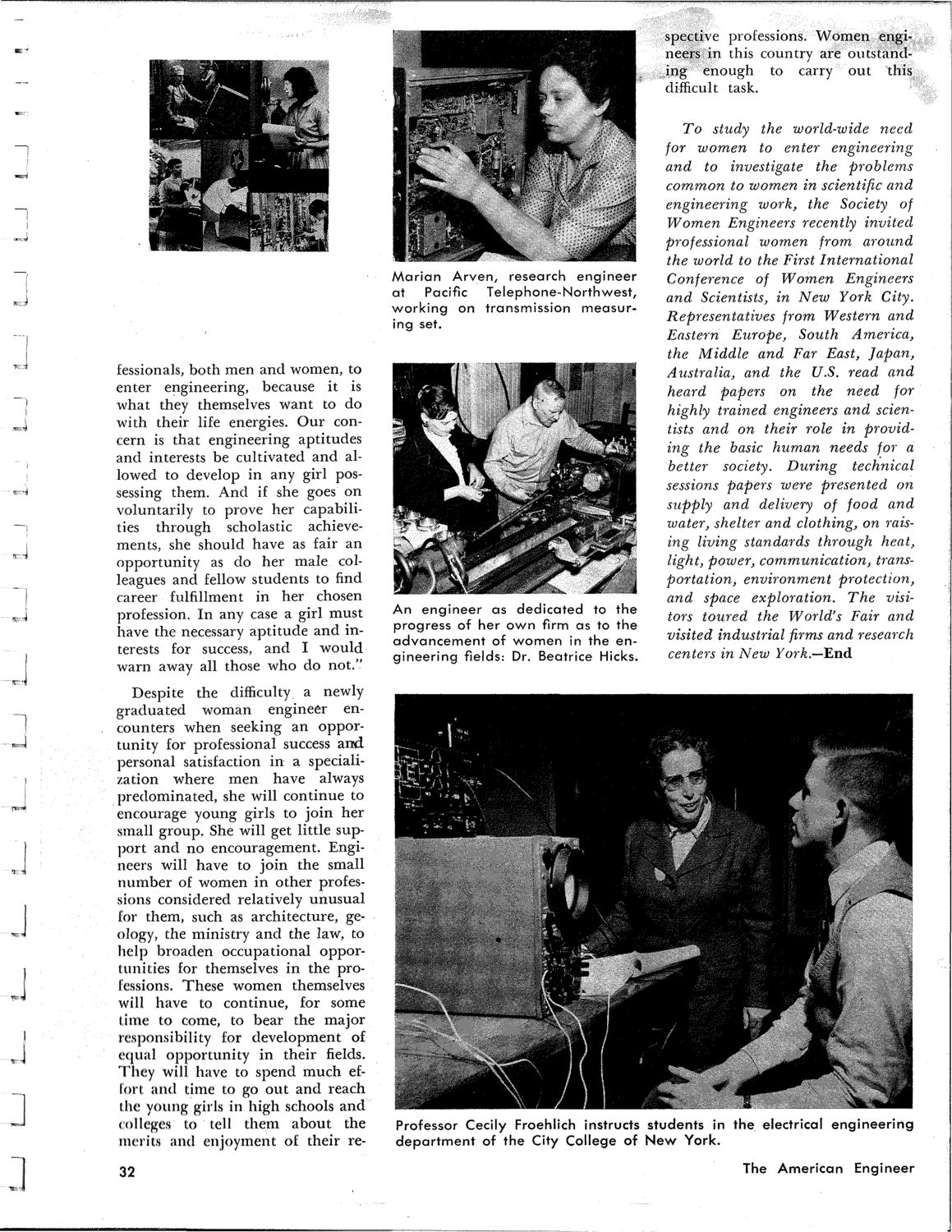| |
| |
Caption: SWE - News Clippings Book
This is a reduced-resolution page image for fast online browsing.

EXTRACTED TEXT FROM PAGE:
spective professions. Women engineers in this country are outstanding enough to carry out this difficult task. To study the world-wide need for women to enter engineering and to investigate the problems common to women in scientific and engineering work, the Society of Women Engineers recently invited professional women from around the world to the First International Conference of Women Engineers and Scientists, in New York City. Representatives from Western and Eastern Europe, South America, the Middle and Far East, Japan, Australia, and the U.S. read and heard papers on the need for highly trained engineers and scientists and on their role in providing the basic human needs for a better society. During technical sessions papers were presented on supply and delivery of food and water, shelter and clothing, on raising living standards through heat, light, power, communication, transportation, environment protection, and space exploration. The visitors toured the World's Fair and visited industrial firms and research centers in New York.—End Marian Arven, research engineer at Pacific Telephone-Northwest, working on transmission measuring set. fessionals, both men and women, to enter engineering, because it is what they themselves want to do with their life energies. Our concern is that engineering aptitudes and interests be cultivated and allowed to develop in any girl possessing them. And if she goes on voluntarily to prove her capabilities through scholastic achievements, she should have as fair an opportunity as do her male colleagues and fellow students to find career fulfillment in her chosen profession. In any case a girl must have the necessary aptitude and interests for success, and I would warn away all those who do not." Despite the difficulty a newly graduated woman engineer encounters when seeking an opportunity for professional success and. personal satisfaction in a specialization where men have always predominated, she will continue to encourage young girls to join her small group. She will get little support and no encouragement. Engineers will have to join the small number of women in other professions considered relatively unusual for them, such as architecture, geology, the ministry and the law, to help broaden occupational opportunities for themselves in the professions. These women themselves will have to continue, for some time to come, to bear the major responsibility for development of equal opportunity in their fields. They will have to spend much effort and time to go out and reach the young girls in high schools and colleges to tell them about the merits and enjoyment of their re- An engineer as dedicated to the progress of her own firm as to the advancement of women in the engineering fields: Dr. Beatrice Hicks. Professor Cecily Froehlich instructs students in the electrical engineering department of the City College of New York. The American Engineer
| |